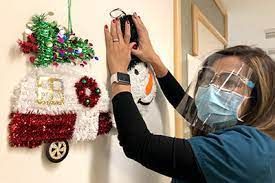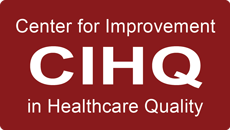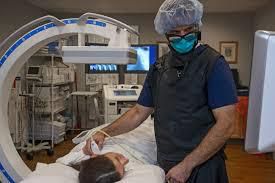Radiologic Services: Refresher for Hospitals on CMS Conditions of Participation
When it comes to delivering radiologic and diagnostic services under The Centers for Medicare & Medicaid Services Conditions of Participation, hospitals need to have policies, procedures and safe practices in place that are centered around delivery of patient services, safety of patients and personnel, qualifications of personnel and record keeping practices.
Hospitals should be equipped to provide radiologic or diagnostic services to meet patient needs. If a hospital is not fully equipped, or equipment is being serviced, contingency arrangements should be made in the interest of patient safety.
Protecting patients and personnel is another requirement and should also be at the forefront of any hospital’s radiation safety program. Shielding of both patients and team members is essential to minimize unnecessary exposure to harmful radiation. Furthermore, team members who are routinely exposed are required to wear dosimetry badges to monitor their level of exposure to radiation.
In addition, routine inspections of equipment should be performed to mitigate the risk of hazards associated with exposure to radiation. Additional safety measures must also include safe storage, use and disposal of radioactive materials.
Hospitals must carefully consider the qualifications of those who provide radiology and diagnostic services while adhering to state laws and regulations. Considerations must include not only state law but also consideration for competency with regard to granting clinical privileges. It is not uncommon for hospitals to use teleradiology services to perform diagnostic image analysis remotely. If your facility utilizes these services, be sure that they are vetted through the same credentialing process as per your organization’s Medical Staff and Governing Body’s Bylaws dictate.
According to CMS conditions of participation, imaging records must be kept by hospitals for a minimum of five years. All imaging reports with diagnostic interpretations must be signed by the radiologist or practitioner who provided services to a patient. Be sure to check with your medical records department to determine the duration of time and the process for medical archiving historical medical records.
Our experts understand the challenges that all healthcare facilities are facing today. Using a customizable approach, we will help you navigate through even the toughest of challenges.
Whether you are in need of mock surveys, leadership training, corrective action plans or ongoing routine support services, we can help! We pride ourselves on helping our clients achieve and maintain a status of excellence in the healthcare industry.
Be sure to browse Our Website for a full list of services we provide.
Contact us today at +1 (800) 813-7117 to schedule a free consultation.








